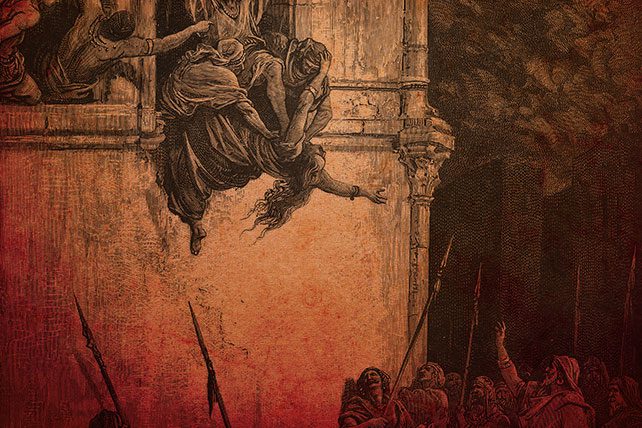The term “Jezebel” has long transcended its biblical origins to become a byword for a certain archetype of womanhood—often pejoratively describing a wicked, shameless, or morally unrestrained woman. This exploration seeks to understand the multifaceted layers of the Jezebel meaning, tracing its roots from a historical and biblical perspective to its current cultural and societal implications.
Biblical Context: The Jezebel Meaning
In the biblical narrative, Jezebel was a Phoenician princess, the wife of King Ahab of Israel. Her marriage was part of a political alliance with Sidon (modern Lebanon), but it led to significant religious and moral conflict within Israel. Jezebel is primarily known for her fervent worship of the Canaanite god Baal, a practice she promoted actively in Israel, and for her ruthless persecution of Yahweh’s prophets.
RELATED: Empowered by Faith: Encouraging Scriptures for Women
Jezebel’s influence on King Ahab and her subsequent actions, including the murder of Naboth to acquire his vineyard for Ahab, epitomize her legacy as a figure of manipulation and defiance against the God of Israel. Her eventual downfall—foretold by the prophet Elijah and fulfilled as she was thrown from a window and consumed by dogs—serves as a stark biblical testament to the consequences of idolatry and immorality.
Etymology of the Name Jezebel
The name “Jezebel” itself is a subject of scholarly debate. It may derive from Hebrew, with interpretations ranging from “Where is the Lord?” to “the exalted one.” This ambiguity adds a layer of complexity to her character, intertwining her identity with themes of religious apostasy and power.
Cultural and Societal Impact
Over centuries, the figure of Jezebel has evolved into a stereotype used to demonize assertive, independent, or sexually autonomous women. This archetype has been employed to justify social control over women’s bodies and behaviors, often reinforcing gender biases and discrimination.
Representation in Media and Literature
The Jezebel trope has permeated various forms of media and literature, embodying the fear and fascination with female autonomy and sexuality. From Renaissance paintings to modern films and literature, the depiction of Jezebel-like characters reflects societal attitudes toward women who defy traditional roles.
Analyzing the Jezebel Archetype
From a psychological and sociological perspective, the Jezebel archetype offers insights into the dynamics of power, gender, and sexuality. It serves as a lens through which to examine how cultural narratives shape and are shaped by societal norms and values concerning women’s roles and behaviors.
The transformation of the Jezebel meaning over millennia—from a complex biblical figure to a cultural symbol of female transgression—reveals much about shifting societal attitudes towards gender, morality, and power. As we deconstruct and understand the layers of the Jezebel archetype, it challenges us to reflect on the stereotypes that persist in our cultural narratives and the impact they have on shaping perceptions and behaviors towards women.

